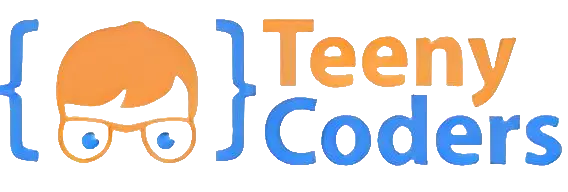Introduction: Coding Education for kids
Coding education can be an excellent way to develop critical thinking skills in children. Coding involves breaking down complex problems into smaller, more manageable parts, analyzing each part, and then developing a solution to the problem. This process requires a great deal of logical reasoning, problem-solving, and critical thinking skills.
By learning to code, children are exposed to a new way of thinking and problem-solving that can be applied to various other subjects and areas of their lives. Coding helps children develop an analytical and systematic approach to problem-solving, which is a valuable skill in any field.
Additionally, coding encourages children to experiment, try out new ideas, and learn from their mistakes. This process of trial and error is essential to developing critical thinking skills as it allows children to analyze the results of their actions and adjust as necessary.
Moreover, coding education teaches children to be detail-oriented, precise, and focused. These skills are essential for developing a critical eye and learning to identify and correct mistakes in their work.
Benefits of gaming in coding Education
Gaming in coding education can help improve critical thinking in several ways. Here are some of the ways:

Problem-solving
Games often present complex problems that need to be solved to progress. This requires players to think critically and come up with innovative solutions to overcome the obstacles. This type of problem-solving can also be applied to coding, where students need to identify the problem, break it down into smaller parts, and come up with a solution.
Logical reasoning
Many games involve logical reasoning, where players need to figure out cause and effect relationships and use deductive reasoning to solve problems. This type of thinking is also essential in coding, where students need to understand how code works and how changes to one part of the code can affect other parts.
Trial and error
Games often require players to try different strategies to overcome challenges. This encourages students to experiment and try different approaches, which is also essential in coding where students need to try different approaches to solve problems.
Collaboration
Many games require players to work together to achieve a common goal. This fosters collaboration skills, which are also important in coding, where students often need to work in teams to develop software.
There are games which can help in developing in kids critical thinking. Let’s see some examples:
Puzzle Games
Puzzle games require players to use logic and problem-solving skills to progress through the game. Games such as Tetris, Sudoku, and Candy Crush are great examples of puzzle games that can help kids develop critical thinking skills.
Strategy Games
Strategy games require players to think ahead and make decisions that will impact the outcome of the game. Games such as Chess, Risk, and Age of Empires are great examples of strategy games that can help kids develop critical thinking skills.
Role-Playing Games
Role-playing games require players to make decisions based on the information presented to them. Games such as The Elder Scrolls, Final Fantasy, and Mass Effect are great examples of role-playing games that can help kids develop critical thinking skills.
Simulation Games
Simulation games require players to manage resources and make decisions that will impact the outcome of the game. Games such as SimCity, Roller-coaster Tycoon, and Civilization are great examples of simulation games that can help kids develop critical thinking skills.
Conclusion
Gaming in coding education can be a valuable tool for improving critical thinking skills. By engaging students in fun and challenging activities, games can help students develop problem-solving skills, logical reasoning, trial and error, and collaboration skills, all of which are essential in coding and other STEM fields.
Overall, coding education is an excellent way to develop critical thinking skills in children. It teaches them to approach problems logically, experiment, learn from mistakes, and be detail oriented. These skills are not only beneficial for learning to code but are also valuable in other areas of their lives.


